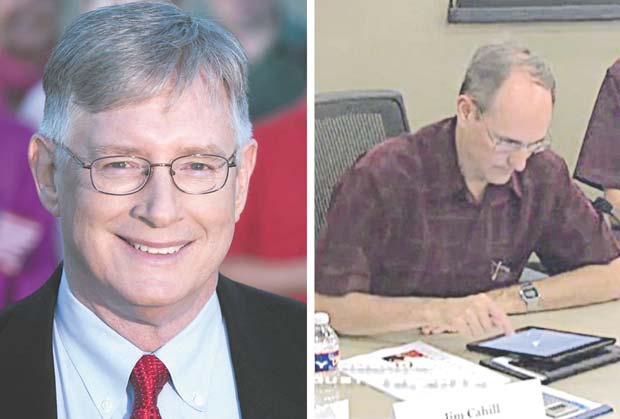Three council members vote against equal access, jeopardizing housing for 1,525 families
DAVID TAFFET | Senior Staff Writer
Taffet@dallasvoice.com
Garland City Council approved revisions to its housing agency five-year and administrative plans to continue to receive funding from the Department of Housing and Urban Development for its rental assistance program, also known as Section 8.
Three council members voted against the update, even though failing to approve the revisions would have jeopardized housing for 1,525 families.
HUD requires a nondiscrimination policy that includes sexual orientation and gender identity. By taking no action, Garland would have lost about $11 million for fiscal year 2015-2016.
At a work session in May, some city council members asked staff to look for options to the language required by the federal government and wanted to add a religious freedom statement.
After that meeting, Resource Center Communications and Advocacy Manager Rafael McDonnell sent a letter to Garland Mayor Douglas Athas warning him that not including the language would jeopardize the city’s funding. He received a letter back from Athas that said “staff is researching” the issue.
McDonnell said he hasn’t heard from the city since.
City staff proposed adding, “The city of Garland Housing Agency recognizes that no law may prohibit the free exercise of religious beliefs,” and sent HUD a letter asking for “clarification.”
On Aug. 4, HUD’s regional director, Regenia Y. Hawkins, responded that excluding the required language does not comply with the requirements for equal access to housing for all Garland residents and called the religious exclusion wording “potentially problematic.”
“The city of Garland must amend its Administrative Plan and 5 Year Plan to specifically state its definition of family as provided,” Hawkins wrote.
She called the religious freedom language “extraneous” and said she wouldn’t “approve a submission that includes any such language.”
HUD also threatened to pull any Community Development Block Grant, HOME and Emergency Shelter Grant money from Garland if the administrative and five-year plans didn’t include the equal access language.
Dallas and Plano updated their language in 2012 after HUD published a rule in the Federal Register entitled, “Equal Access to Housing in HUD Programs Regardless of Sexual Orientation or Gender Identity,” commonly referred to as the Equal Access Rule.
Under the new rule, the word “family” refers to anyone “regardless of actual or perceived sexual orientation, gender identity or marital status.”
In her letter to the city, Hawkins explained that HUD may use the word “family” differently than many people do. In her rebuttal of the religious exemption language, she wrote, the city’s language implied that an administrator, caseworker or private owner may opt out by claiming religious freedom. That is “not the case,” she wrote.
Finally, Hawkins granted the city’s requested extension in submitting the revised five-year and administrative plans, but chided the city for already being late.
At the Aug. 18 Garland City Council meeting, Councilman Jim Cahill — one of the three who voted against the required revisions — said the Fair Housing Act doesn’t include protections based on sexual orientation and gender identity.
“I found it very difficult to include that kind of language in our policy,” Cahill said.
He said the behaviors being protected were immoral and he’d have to violate his religious beliefs to participate in the program.
“If I had a house I wanted to participate, I couldn’t do it,” he said. “I can’t vote for this.”
Cahill proposed a motion to include religious language that was even stronger than the language HUD had already told the city would disqualify it from receiving funds. That motion lost in a 4-5 vote.
“We’d be better off not having the program than putting our stamp of approval on this definition of family,” Cahill said.
But in the final 6-3 vote, the council amended Garland’s plans by adding the required Equal Access rule to ensure it continues to receive grant money to house those 1,525 families.
McDonnell said Garland received a score of 10 on Human Rights Campaign’s Municipal Equality Index. Those points were for reporting hate crimes, not for any nondiscrimination policies.
He said neighboring Mesquite is currently looking at updating its policies to include nondiscrimination language so it can compete for business on par with Dallas and Plano.
“Garland is behind Mesquite,” McDonnell said. “Let that sink in.”
This article appeared in the Dallas Voice print edition August 28, 2015.
















